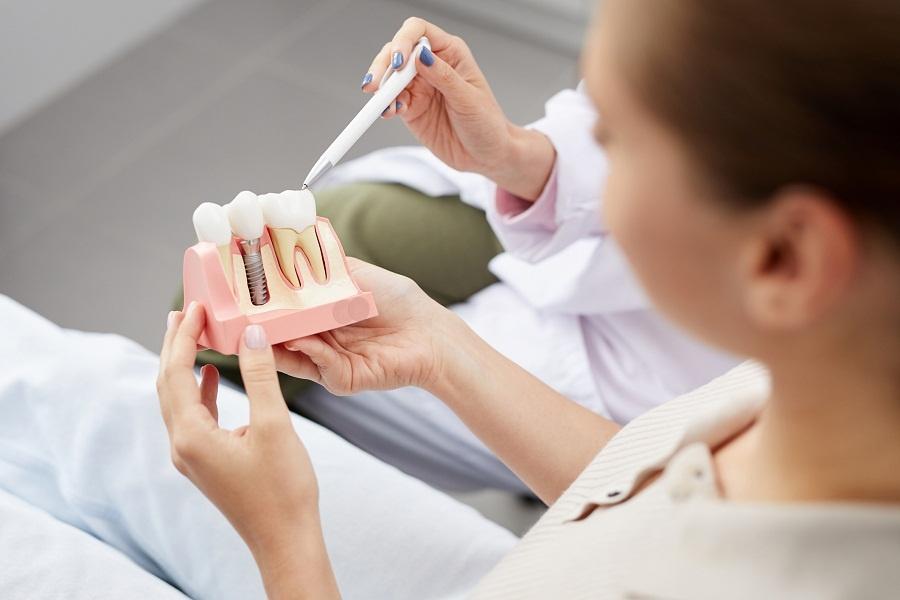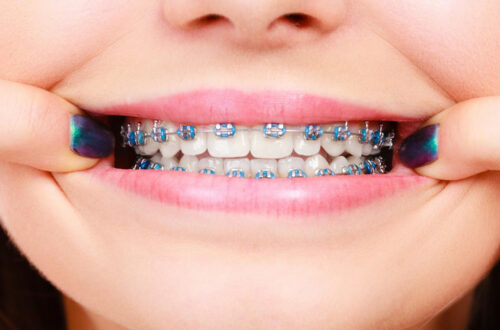
Types of Dental Implants – What Are They?
There are many types of dental implants. They all have the same purpose – to replace missing teeth with artificial ones. A dental implant is a tiny screw or a rod that is inserted into the jaw where it anchors to the surrounding structures, replacing the missing tooth. In this article, we will discuss common types of dental implants and their applications.
Each adult person is responsible for his own health. Unfortunately, not everyone is aware of the fact that any negligence brings negative consequences for the day. More than half of adults struggle with missing teeth, but they don’t see it as a problem. Any gaps must be filled! I recommend using the services of Implanty Poznań to prevent the loss of bone tissue in the oral cavity. Otherwise, jaw bone reconstruction may be necessary.
Screw-Type Dental Implants
Screw-type dental implants are threads that are used to anchor an artificial tooth into the jawbone. They are one of the most commonly used types of dental implants. To implant a screw-type implant, the surgeon drills a small hole into the bone and then places the screw. The screw is then anchored to the jawbone using a small amount of bio-occlusive gel. The gel serves to keep the implant securely in place until the body’s healing process repairs the jawbone. All screw-type dental implants come in various sizes, allowing for a custom fit in the jawbone.
Threaded Teir Dental Implants
Threaded dental implants are similar to screw-type implants, but the thread itself is the part that is implanted into the jawbone. The thread itself is made of titanium, allowing for a strong and yet flexible fixation. These implants are usually used to replace severely damaged teeth that are beyond repair. Drilling a hole into the jawbone is not necessary with threaded implants. The implant is shaped like a section of pipe, and thus, it easily slides into the bone without any damage to the surrounding tissues. The advantage of using this type of implant is that it is a good option for patients with certain medical conditions, like diabetes and heart disease, as the implant is less likely to cause issues than other dental implants.
Bone Grafting Type Dental Implant
Bone grafting implants are similar to threaded implants, but instead of being threaded, they are shaped like a section of bone. They are used to replace damaged teeth that have been removed by surgery. The surgeon typically makes an incision on the patient’s bone and then removes the damaged teeth and bone. The surgeon then plugs the bone with bone cement and sutures it back together. The implant is then inserted into the bone. The advantage of bone grafting implants is that they are a good option for patients with certain medical conditions, as they are less likely to cause issues than dental implants made of titanium.
Conventional – Fixed Bridge
Fixed bridges are also called traditional dental bridges. They are typically made of gold or a mixture of different alloys. The bridge is shaped like a small wire that is attached to a tooth. The wire is then attached to a dental implant at the front of the mouth. The advantage of using a fixed bridge is that it can last a lifetime. It doesn’t require any maintenance, and it is an easy method to improve the appearance of the mouth. The major disadvantage of a fixed bridge is that it does not provide support for the teeth in the arch. The teeth in the front of the mouth are likely to drop out, requiring an expensive repair.
Prosthodontic – Removable Dentures
Removable prosthodontic dentures are a variation of the fixed bridge. They are made of acrylic or porcelain and are attached to a dental implant. The advantage of using removable prosthodontic dentures is that they do not require any dental root planning or extraction. The disadvantage is that they often look unnatural and may be uncomfortable to wear.
Conclusion
Dental implants are metal screws or T-bar implants that are surgically implanted into the jawbone. They provide a stable foundation for replacement teeth or bridges. There are many types of dental implants, and they are typically used to replace severely damaged teeth that are missing. Impacted wisdom teeth are another common reason for the need for dental implants. If you have one or both wisdom teeth that are impacted, you may benefit from dental implants. Your dentist can help you decide which type of implant is best for you.




